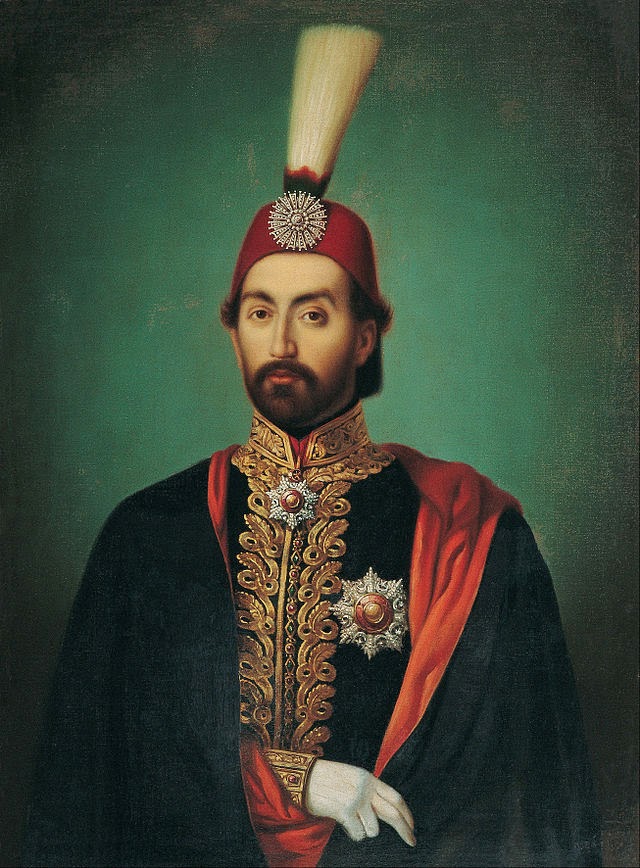 |
PERRY carrying the 'GOSPEL of GOD'
|
The US president, Millard Fillmore, in one of his last acts of government, instructed the Commodore Matthew C. Perry to hand an official diplomatic statement to the Emperor of Japan. The document called for the Japanese Emperor to consider the opportunity to make trade between the two nations. Furthermore, it should be an advantage for both nations because the states of Oregon and California were in front of the Japanese archipelago, and only 18 days of steamships, across the Pacific Ocean.
 |
Woodblock print portraying an 1854
meeting between Commodore Perry, his officers and Japanese noblemen, circa 1887
(Image courtesy of the Brooklyn Museum)
|
The Commodore Perry took the opportunity and exceeded his mission by delivering two letters to the Japanese emperor: the diplomatic note from President Fillmore, and a letter with threats, written by Perry himself, forcing trade liberalization in Japan.
 |
Matthew C. Perry in 1854.
|
In addition, to impress the Japanese with the size of American ships, technology, and artillery, Perry softened his arrogance, announcing that would give them eight months later to answer positively, and told the Japanese to be prepared to open their borders to trade with the United States at his arrival.
 |
Commodore Perry's fleet for his
second visit to Japan, 1854. Notice the difference among ships and Japanese pagodas.
|
Perry announced that he would return on March 31, 1854, time enough for the Japanese to issue the necessary decrees, and ads its population to its population to accept the transit of foreign navigation on Japanese seas. But most important of all, Perry required that the Japanese people accepted the entry of foreign goods to the "land of the rising sun". As a matter of fact, The Japanese tradition teaches that the Japanese emperor comes from the sun.
 |
Commodore Perry's fleet for his
second visit to Japan, 1854
|
The negotiations agreed upon included the following points:
Initial opening of the ports of Shimoda and Hakodate.
Establishment of an American consulate in Shimoda.
Implementation of the most favored nation clause -MFN-
 |
The Kanagawa Treaty is at the red
point.
|
The most Favored Nation clause meant that USA would not discriminate Japan among its trading partners. That is to say that if USA granted someone a special favor (such as a lower customs duty rate for one of their products) then USA would have to do the same for all other trade members. No trade discrimination.















_signatures.jpg)






.jpg)










.svg.png)



.jpg)






